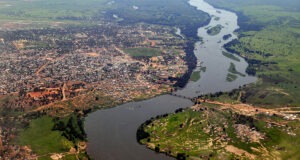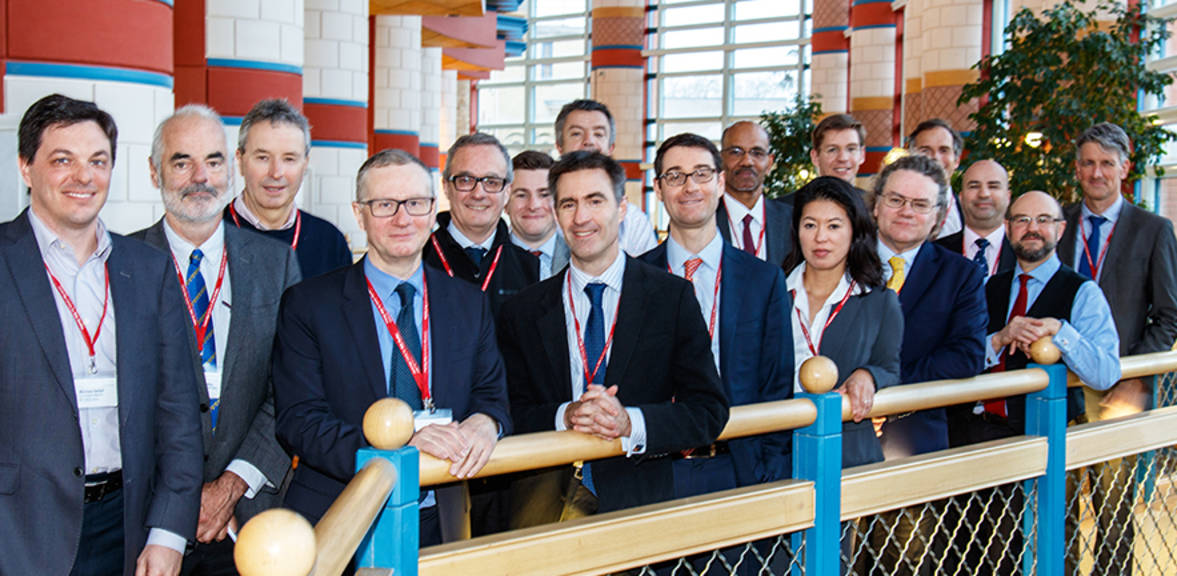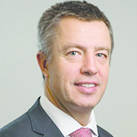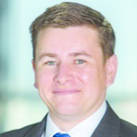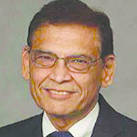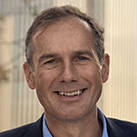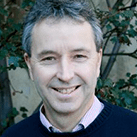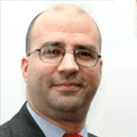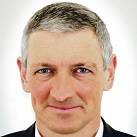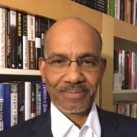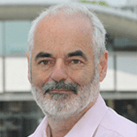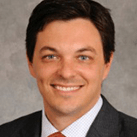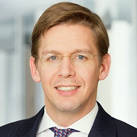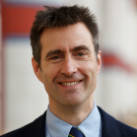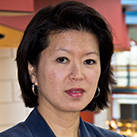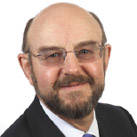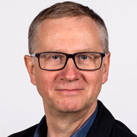The Cambridge Centre for Risk Studies has held the 2016 meeting of its Advisory Board, with attendees representing the supporting organisations of the Centre, academic advisors, and invited guests.
The executive team of the Centre for Risk Studies presented a progress report on the past year’s activities, the current positioning and strategy of the Centre, and the various strands of research. The meeting reviewed the strategy, focus, and differentiating characteristics of the Centre.
The Advisory Board provides guidance and inputs into the planning of the future research agenda of the Centre for Risk Studies.
The Centre for Risk Studies research team gave a series of presentations in a morning session to provide the Advisory Board Meeting attendees with an update on recent research activities and current thinking around next stage research objectives.
Download the Research Showcase agenda (pdf, 73KB)
Presentations
| Overview of 2015 Research at the Cambridge Centre for Risk Studies | Professor Daniel Ralph, Academic Director, Centre for Risk Studies Download the presentation (pdf, 1.26MB) |
|---|---|
| Proactive Cyber Risk Management | Éireann Leverett, Senior Risk Researcher, Centre for Risk Studies Download the presentation (pdf, 439KB) |
| TechCatResearch Track 2015 Highlights | Simon Ruffle, Director of Research & Innovation, Centre for Risk Studies Download the presentation (pdf, 578KB) |
| Financial Catastrophe Research & Stress Test Scenarios | Dr Andrew Skelton, Research Associate, Centre for Risk Studies Download the presentation (pdf, 681KB) |
| Catastronomics in World City Risk | Jaclyn Yeo, Research Assistant, Centre for Risk Studies Download the presentation (pdf, 1.13MB) |
| Solar Storm Helios Scenario | Jennifer Copic, Research Assistant, Centre for Risk Studies Download the presentation (pdf, 637KB) |
| Financial Risk & Network Analysis | Dr Ali Rais Shaghaghi, Research Assistant, Centre for Risk StudiesDownload the presentation (pdf, 1.52MB) |
| Critical Infrastructure Interdependencies (CII) | Dr Edward Oughton, Senior Risk Researcher, Centre for Risk Studies Download the presentation (pdf, 917KB) |
| Research Objectives for 2016 | Dr Andrew Coburn, Director of Advisory Board, Centre for Risk Studies Download the presentation (pdf, 747KB) |
Members of 2016 Advisory Board of Cambridge Centre for Risk Studies
Russell Bean
Head of Financial Institutions Underwriting, Talbot Underwriting
Read more about Russell
Russell started his career at the Sun Alliance and between 1994 and 2002 he underwrote Professional and Financial Lines before becoming the worldwide FI product leader. He is currently the Head of Financial Institutions at the Talbot Syndicate where he oversees all aspects of the division. He is ACII qualified and sits on a number of market committees, including chairing the LMA FI panel.
Nick Beecroft
Head of Emerging Risks & Research, Lloyd’s
Read more about Nick
Nick Beecroft is Manager, Emerging Risks and Research at Lloyd’s. His team is responsible for providing foresight and actionable analysis on emerging risks, working with partners in the research community to provide forward-looking insight and to reduce uncertainty concerning new and rapidly changing risks. Key outputs are thought leadership reports, scenarios for stress-testing and insight to inform innovation strategy. Before joining Lloyd’s, Nick spent the majority of his career as an Intelligence Officer in the Royal Air Force. Appointments included attachments to central government in a counter-terrorism role and to the British Army, where he was responsible for operational planning and mentoring of local forces on deployed operations.
Siddhartha Dalal
Chief Data Scientist and Sr. VP of Advanced Research and Technology, Science, AIG Property Casualty
Read more about Siddhartha
Sid Dalal joined the Science Team in September of 2013. He comes to AIG from RAND Corporation where he served as CTO, and where he pioneered several new systems for conducting research. Sid also served as VP of Research at Xerox overseeing their worldwide imaging and software services research, and Bell Laboratories and Bellcore/SAIC/Telcordia Technologies, where he served as Chief Scientist and Executive Director. Sid received an MBA and a PhD from the University of Rochester and has published more than 100 peer reviewed publications, patents and monographs covering the areas of risk analysis, medical informatics Bayesian statistics and economics, image processing and sensor networks. He was also responsible for the creation of technology and spinning off of Praedicat, an insurance analytics company in casualty space, from RAND Corporation. Sid is also a member of US Army Science Board, an advisory board of 20 scientists appointed by Secretary of Defense to advise US Army on technology. Sid has received several awards including from IEEE, ASA and ASQ.
Matthew Grant
General Manager, RMS Model & Data
Read more about Matthew
Matthew is today responsible for all of RMS’ Model & Data business. RMS is the largest provider to the global insurance industry of pricing and portfolio management tools for natural and man-made catastrophes. Having successfully introduced catastrophe modelling into the London market in 1992, Matthew founded the RMS European office in 1996, with a team of four people all of whom remain at RMS today. In recent years, Matthew’s responsibilities have included leading the sales, marketing, service and the RMS capital markets teams. In Matthew’s time at RMS, revenue has grown from $24m to close to $300m. Prior to joining RMS, Matthew was involved in risk assessment and emergency planning for the nuclear, chemical, and offshore industries. He holds a degree in Mechanical Engineering.
Anna-Marie Greenaway
Director of University Relations, BP
Read more about Anna-Marie
Anna-Marie Greenaway was appointed BP Director of University Relationships in 2015, which is a global role encompassing technical and policy research to support BP’s strategic objectives, recruitment, executive education and international research partnerships. Prior to this she was BP’s VP Science and Technology at the University of Cambridge and still retains accountability for this strategic partnership. She is a member of the Board of the BP Institute and sits on the Advisory Board of the Scott Polar Institute and the Clean Energy Centre at Tsinghua University, Beijing. Previously, Anna-Marie spent four years in BP’s Group Strategy team where she led the 2030 Energy Pathways research programme covering the US, EU, China, India and Brazil. This involved bringing together local, international and multi-disciplinary teams from across BP and incorporating external perspectives from wider industry sectors, government bodies and leading academics.
Earlier roles at BP have spanned special assignments to support Group Technology and Safety & Operations, Head of Downstream Change Leadership Capability and leading the Technical & Commercial Partnership between BMW & Castrol across Western Europe. Prior to BP, Anna-Marie spent 10 years in retail operations, advertising and corporate communications with Exxon after joining their graduate programme in 1989 as a capital investment analyst. She holds a BRc from the Dept of Earth Science RHBNC University of London and a Masters degree in Sustainability Leadership from the Department of Engineering, University of Cambridge.
Frank Kelly
Professor of the Mathematics of Systems, Statistical Laboratory, University of Cambridge, and Master of Christ’s College, Cambridge, University of Cambridge
Read more about Frank
Professor Frank Kelly is Master of Christ’s College and Professor of the Mathematics of Systems in the University of Cambridge. His main research interests are in random processes, networks and optimisation. He is especially interested in applications to the design and control of networks and to the understanding of self-regulation in large-scale systems. From 2003 to 2006 he served as Chief Scientific Adviser to the United Kingdom’s Department for Transport. He was chair of the Council for the Mathematical Sciences from 2010 to 2013, and a member of the RAND Europe Council of Advisors from 2008 to 2015. He is a Fellow of the Royal Society and a Member of the National Academy of Engineering.
Michael Maran
Chief Science Officer, XL Catlin
Read more about Mike
Michael Maran graduated from St Catharine’s College, Cambridge in 1983 with a bachelor’s degree in Natural Sciences (having studied the biological and geological sciences) and subsequently a master’s degree and PhD in Astrophysics from Queen Mary College, University of London. He is an ACII qualified Chartered Insurer with over 30 years of experience in the insurance industry, and a Fellow of the Royal Astronomical Society. Mike joined the Catlin Group in 2002 and spent 10 years as Underwriter for the Space account. In 2012, he was appointed as the Catlin Group’s Chief Science Officer, a position which he now holds in the newly formed XL Catlin Insurance. Formerly the chairman of the Catlin’s Emerging Risks Committee, Mike is now an active member of the XL Catlin Emerging Risks Task Force. As Chief Science Officer, Mike works with XL Catlin underwriters, risk modellers, actuaries and other employees to improve risk assessment capabilities by reviewing the scientific aspects of risks. He also helps to identify new underwriting opportunities for XL Catlin created by scientific progress, and serves as an advisor for various XL Catlin activities that are related to science, such as the current XL Catlin Seaview Survey.
Rainer Sachs
Head of Group Accumulation and Emerging Risks, Munich Re
Read more about Rainer
Dr Rainer Sachs heads the Group Accumulation and Emerging Risks team at Munich Re’s Integrated Risk Management division, developing risk identification and quantification tools for Munich Re’s global business operations. Before joining Munich Re, Rainer Sachs was working in the Credit Risk Management division at Unicredit. During his more than 10-year career in risk management, he has held various positions in financial and insurance risk management, both in Germany and Australia. Rainer Sachs’s current research interests focus on modelling complex risks in insurance and the human factor in decisions under uncertainty. He holds a PhD from the University of Munich/Max-Planck-Institute for extra-terrestrial Physics and a Master in cosmology from the Technical University of Munich/University of Pune (India).
John Rees
Risk Research Coordinator, UK Research Councils (RCUK)
Read more about John
Professor John Rees is the UK Research Councils (RCUK) Risk Research Coordinator and leads the RCUK Risk Research Network. He is the current chair of the UK Collaborative for Development Sciences Disaster Research Group, and is a visiting Professor of Petrophysics at Leicester University. Previously he was the Natural Environment Research Council (NERC) Natural Hazard Theme leader, and Head of Corporate Policy and Science Coordination at the British Geological Survey (BGS), where he has been based for most of his career. He has worked extensively on coastal and marine hazards, urban risks – largely in Africa, Latin America and Asia, and bridging the science-policy gap. He has authored over 100 papers, books and major reports and was one of the co-recipients of the 2012 Lloyds Science of Risk prize. He has been called-upon to provide advice or evidence to many UK and international scientific panels, Government Policy Reviews and Select Committees. Prior to joining BGS he was educated in Sussex, at Sheffield University and at Trinity College Dublin before working for a period in industry.
Alan Smith
Global Head of Risk Strategy and Senior Executive Officer, Group Risk, Global Risk, HSBC Holding
Read more about Alan
Alan Smith is Global Head of Risk Strategy and Senior Executive Officer of Group Risk within the Global Risk function of HSBC Holdings, one of the world’s largest financial services organisations. He is a member of HSBC’s Global Risk Management Board, which oversees the 25,000 member Global Risk Function and of the Group Asset and Liability Management Committee. He co-chairs its Stress Testing, Model Risk and Pensions Risk Oversight Committees. Alan has worked with HSBC for 21 years in a variety of senior finance, risk and capital management roles in the Group Head Office, in its Global Banking and Markets Business, in London and in Saudi Arabia. Prior to HSBC, Alan worked with KPMG London from 1987 to 1994. Alan is a Fellow of the Institute of Chartered Accountants of England and Wales and has an MBA in Finance from Cass Business School, City University in London which he attended as a UK Commonwealth Scholarship winner after completing his undergraduate degree at the University of the West Indies in Jamaica. Outside of work, Alan has a keen interest in cricket, theatre and travel, amongst others. He sits on the Audit Committee of the Commonwealth Secretariat, on the Finance Committee of an international faith based organisation working with university students, and on the Advisory Board of the Centre for Risk Studies at Cambridge University’s Judge Business School. He is a Fellow of the Royal Society of Arts, Manufactures and Commerce.
David Spiegelhalter
Winton Professor for the Public Understanding of Risk, University of Cambridge
Read more about David
David Spiegelhalter is Winton Professor for the Public Understanding of Risk, and Professor of Biostatistics, at the University of Cambridge. His background is in medical statistics, particularly the use of Bayesian methods in clinical trials, health technology assessment and drug safety. In his post he leads a small team (UnderstandingUncertainty.org) that attempts to improve the way in which the quantitative aspects of risk and uncertainty are discussed in society. He works closely with the Millennium Mathematics Project in Cambridge in trying to develop an exciting treatment of probability and risk for mathematics education. He gives many presentations to schools and others, advises organisations and government agencies on risk communication, and is a regular commentator on current risk issues. He presented “Tails you Win: the Science of Chance” and co-presented “Climate Change by Numbers”, both BBC4 documentaries, and in 2011 came 7th in an episode of Winter Wipeout on BBC1. He has over 190 refereed publications and is co-author of six textbooks, as well as The Norm Chronicles (with Michael Blastland). He is a Fellow of Churchill College Cambridge, an Honorary Fellow of the Institute for Risk Management, an Honorary Fellow of the Royal College of Physicians, and was elected Fellow of the Royal Society in 2005. He was awarded an OBE in 2006 and knighted in 2014, both for services to medical statistics.
Matthew Swibel
Director, Corporate Sustainability, Lockheed Martin
Read more about Matthew
Matthew directs sustainability strategy, reporting and stakeholder engagement at Lockheed Martin Corporation, which under his tenure was added to the Dow Jones Sustainability Index and became the top-ranked Aerospace & Defense prime contractor named to CR Magazine’s 100 Best Corporate Citizens list. He led Lockheed Martin’s inaugural report in 2012, and its first core issues assessment, formal stakeholder summits and GRI-based report in 2013. He reports to the corporate vice president – Ethics & Sustainability, and sits on the Corporate Sustainability Council, which oversees ethics & business conduct, diversity & inclusion, and sustainability policy & performance. From 2008 to 2012, Matthew was Director of Enterprise Communications, where he led a team supporting the CFO, Executive Office of the Chairman and other corporate officers. In this role, he developed and planned multiple aspects of integrated communications including employee and supplier engagement, advertising and outreach to investors and financial/environmental media. Matthew spent almost a decade as a journalist, most recently as Associate Editor of Forbes, where he co-edited the World Billionaires issue and was recognised by the Overseas Press Club for his business reporting from abroad. Prior to Forbes, he was a staff reporter at Washington Business Journal, where his coverage of marketing and web-based political fundraising each earned Maryland-DC-Delaware and Virginia Press Association awards. He taught as an adjunct professional lecturer at American University’s School of Communication from 2005 to 2008. Matthew graduated cum laude from American University (DC) with degrees in Communications and Sociology and earned an MBA from the University of Maryland. He is an independent director of Cornerstone Capital.
Guest attendees
Matthias Heuser
Expert Principal, McKinsey & Company
Read more about Matthias
Since 1999, Matthias Heuser has been working with McKinsey & Co. in Hamburg, Germany. He is a Principal focusing on Risk Management and Wholesale Banking. He has consulted Financial Institutions on Management of Credit and Market risk, implementation of Treasury/ALM Tools, and business strategy. Matthias Heuser studied in the USA and in Germany business administration with a focus on finance and accounting. He holds graduate degrees from University of Frankfurt (Diplomkaufmann) and University of Iowa (MBA). In addition he has received the Master of Financial Engineering (MFE) from the University of California, Berkeley (USA).
Executive Committee of Cambridge Centre for Risk Studies
Professor Daniel Ralph
Academic Director, Cambridge Centre for Risk Studies, University of Cambridge Judge Business School & Professor of Operations Research
Read more about Daniel
Professor Daniel Ralph is a Founder and Director of the Centre for Risk Studies, Professor of Operations Research at Cambridge Judge Business School, and a Fellow of Churchill College.
Daniel received his PhD in 1990 from the University of Wisconsin Madison. He was a faculty member of the Mathematics & Statistics Department at the University of Melbourne before coming to Cambridge University for a joint appointment in the Engineering Department and Cambridge Judge Business School.
Daniel’s research interests include optimisation methods, equilibrium models for electricity markets, and risk in business decision making. He is Editor-in-Chief of Mathematical Programming (Series B).
Dr Michelle Tuveson
Executive Director, Cambridge Centre for Risk Studies
Read more about Michelle
Michelle Tuveson is a Founder and Executive Director at the Cambridge Centre for Risk Studies hosted at the University of Cambridge Judge Business School. Her responsibilities include the overall executive leadership at the Centre. This includes developing partnership relationships with corporations, governments, and other academic centres. Dr Tuveson leads the Cambridge CRO Council and she chairs the organising committee for the Cambridge Risk Centre’s Annual Risk Summits. She is one of the lead organisers of the Aspen Crisis and Risk Forum. She is an advisor to the World Economic Forum’s 2015 Global Risk Report and a contributor to the Financial Times Special Report on Risk Management. She is also an advisor to a number of corporations and boards as well as a frequent conference speaker.
Dr Tuveson has worked in corporations within the technology sector with her most recent position in the Emerging Markets Group at Lockheed Martin. Prior to that, she held positions with management strategy firm Booz Allen & Hamilton, and US R&D organisation MITRE Corporation. Dr Tuveson’s academic research focusses on the application of simulation models to study risk governance structures associated with the role of the Chief Risk Officer. She was awarded by the Career Communications Group, Inc. as a Technology Star for Women in Science, Technology, Engineering and Maths (STEM). She earned her BS in Engineering from the Massachusetts Institute of Technology, MS in Applied Math from Johns Hopkins University, and PhD in Engineering from the University of Cambridge. She is a member of Christ’s College Cambridge.
Dr Andrew Coburn
Director of the External Advisory Board, Cambridge Centre for Risk Studies and Senior Vice President, RMS
Read more about Andrew
Dr Andrew Coburn is the Director of Advisory Board at the Cambridge Centre for Risk Studies. Andrew is Senior Vice President at Risk Management Solutions, the leading provider of catastrophe risk models to the insurance industry. Andrew is the principal coordinator of the research programme on ‘System Shock’ at the Centre.
Andrew is one of the leading contributors to the creation of the class of catastrophe models that over the past 20 years has come to be an accepted part both of business management in financial services and of public policy making for societal risk. He has extensive experience in developing models and using them for business decision support. Andrew has also provided research inputs into government policy, such as House of Congress legislation on terrorism risk management policy and urban planning for disaster mitigation in Mexico, Metro Manila, and Southern Italy.
Simon Ruffle
Director of Technology Research, Cambridge Centre for Risk Studies
Read more about Simon
Simon Ruffle is researching a common framework for analysing complex global systemic risk. He coordinates research in the Centre though a unified modelling software platform, a common database architecture and information interchange standards. He is developing methods for storing and applying the Centre’s Stress Test Scenarios and other Risk Assessment Tools to macro-economic analysis and investment portfolio impact. He is researching how network theory can be applied to understanding the impact of catastrophes in a globalised world, including supply chains, insurance and banking.
He is involved in specific threat topics, and currently is leading the Centre’s cyber threat research track. He is a member of the Centre’s Executive Team and manages several external sponsor relationships.
Originally studying architecture at Cambridge, Simon has spent most of his career in industry, developing software for natural hazards risk. He has worked on risk pricing for primary insurers, catastrophe modelling for reinsurers, and has been involved in placing catastrophe bonds in the capital markets. He has many years of experience in software development, relational databases and geospatial analysis and has worked in a variety of organisations from start-ups to multinationals.

